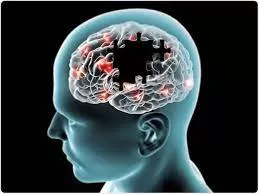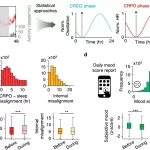In a groundbreaking study, researchers at Huntsman Cancer Institute at the University of Utah have unlocked a crucial aspect of memory formation: the intricate process of dendritic translation. Their findings, published in Nature Neuroscience, offer unprecedented insights into how protein synthesis within dendrites contributes to learning and memory, with potential implications for understanding intellectual disorders like Fragile X syndrome.
Led by Dr. Robert B. Darnell, the team developed a revolutionary platform, named TurboID, capable of pinpointing the specific regulatory mechanisms driving dendritic translation. This platform enabled the discovery of previously unknown factors in memory formation, shedding light on the molecular mechanisms underlying memory formation.
“Dendritic translation is the holy grail for understanding memory formation,” remarks Dr. Darnell, underscoring the significance of their research.
Memory formation revolves around the hippocampus, a brain region critical for learning and memory. Through their study, the researchers unveiled a microscopic upheaval in dendrites during memory formation, wherein local ribosomes jump onto mRNAs, triggering the production of new proteins, including over 1,000 small proteins known as micropeptides. These micropeptides, with as-yet unknown functions, represent a novel area of exploration in memory research.
“We never knew these micropeptides might even exist,” expresses Dr. Darnell, emphasizing the groundbreaking nature of their discovery.
Moreover, the study identified an RNA-binding protein, FMRP, whose dysfunction is associated with Fragile X syndrome, a common genetic cause of intellectual disability. The findings suggest a potential link between FMRP and dendritic translation, offering new avenues for understanding and treating Fragile X syndrome.
Dr. Ezgi Hacisuleyman, the lead author of the study, emphasizes the transformative potential of their research, stating, “Our new techniques can accomplish this with extremely high resolution to look at neurons in vitro that are closely mimicking what we see in the brain.”
The study’s findings not only advance our understanding of memory formation but also pave the way for personalized approaches to treating memory-related disorders. By unraveling the mysteries of dendritic translation, researchers aim to unlock new therapeutic strategies for enhancing memory and cognition.
“This discovery opens a new field of study, where we can ask what these peptides might be doing and how they could play into memory formation,” concludes Dr. Darnell, highlighting the vast potential for future research in this groundbreaking area.
Moving forward, the dendritic-TurboID platform holds promise for investigating protein synthesis in other brain regions and addressing a myriad of neurological disorders, heralding a new era of discovery in neuroscience.
The study was supported by the National Institutes of Health/National Cancer Institute and the Huntsman Cancer Foundation, underscoring the collaborative effort to advance scientific knowledge and medical breakthroughs.











